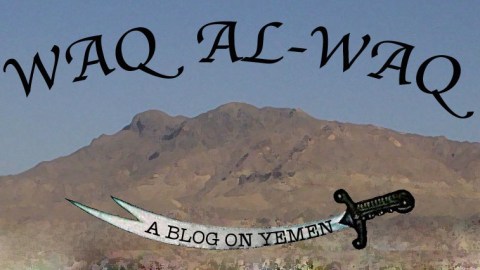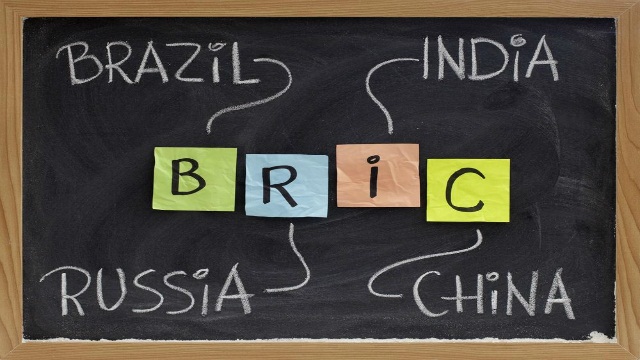Guest Post: Yemen and Foreign Aid

Today the Friends of Yemen met in Riyadh. One of the key issues, as it often is at these meetings, is that of foreign aid.
Several days ago a group of Yemeni students gathered to debate exactly the topic of Foreign Aid and whether it is causing more harm than good.
The organizer of that debate, Ibrahim Mothana, sent out a follow-up e-mail to that debate, which he kindly agreed to allow to be posted here to Waq al-waq as a guest post.
(As always with guest posts, I don’t necessarily endorse the views expressed, but I believe them to be an important perspective that deserves consideration.)
Ibrahim Mothana: 23-year-old activist, writer and Yemen’s 2011 Arab Thought Foundation Ambassador. Co-founder of Watan Party & Yemen Enlightenment Debate
You can also follow him on twitter @imothanaYemen
Here is a video of the original debate, which was conducted in English. It is just over 50 minutes long and I encourage you all to watch it.
And the following is Ibrahim’s guest post:
First, I will start with addressing a disappointment many people had with the title of the debate and the intense arguments during it. Well, I must say that the role of debates is always to provoke and help people get out of their comfort zones and think in a way they would’ve not have without attending/watching the debate.
Perhaps, It would’ve been a much lovelier discussion if the title was “Can Foreign Aid Cause some Harm?” and we remained stuck to our routine diplomatic maneuvers but that wouldn’t have been a debate nor what we wanted to do.
Going back to our debate topic, I would like to simply restate the fundamental ground of my argument: NGOs are not sacred neither we are therefore we should step back from time to time to assess both our success and failures to find better effective ways to deal with our ultra complicated problems and imperfections. When we emphasized that “Foreign Aid Caused More Harm than Good” it was clear from our arguments that we didn’t call for stopping aid but rather for developing our institutions and modules to reach a point where “Foreign Aid Cause More Good than Harm”
The reason I organized the debate is because I have always been disgusted with the amount of hypocrisy that exist in the aid circles on different levels. And of course all aid is not in one category as well as the different approaches.
I am somewhat skeptical of the US aid because of its largely ineffective militaristic nature. I think the EU is doing a better job. I must say, however that Yemen is getting even worse from the Saudi/Iranian/Qatari politically and ideologically motivated aid in a growing national and regional tension.
Anyhow, I truly believe that there are a lot of amazing well intentioned people working with AfD, DFID, GIZ, US Aid and other development agencies and these exceptional efforts can be channeled into a much better system that compares to the mostly effect-less donor-resource consumption we have been experiencing for ages. As many rightly suggested, there should be some sort of conditions enforced on the government to guarantee a better results from donors.
Nevertheless, what is most important is to enforce conditions on the Yemeni NGOs and stakeholders getting the grants. By that I don’t mean to set the issues and priorities that they have to work on as is wrongly done in many cases, but rather to enhance the monitoring and assessments processes to ensure a better concrete outcomes of the process.
Moreover, generally aid is extremely Sana’a-centric and other than Aden and few other major cities, it tends to be invisible in other areas that desperately need it. Hence a small circle of elite was created who can obviously be noticed in their “aid-lords” status highly profiting from this recourse/risk-less “business”.
Government aid corruption is an issue that is pointed out every day in the media and in our continuous political discussions. Unfortunately, this is not the case with NGO corruption because those who are controlling the NGO sector are in many cases the faces of Yemeni media and many journalists work partially with organizations and enjoy endless benefits for writing inflated press releases on how amazing these NGOs are.
Democracy, rule of law, development, sustainability and all the values NGOs unfortunately bring in an empty rhetoric templates vanishes as soon as the per-diem is distributed and that simply explains why the 9000+ NGOs that have opened in the past couple of decades are inactive at the moment, you don’t have to be a genius to know that they existed because of the aid not the cause!
These organizations didn’t spend any effort whatsoever to make these noble values relevant, localized and meaningful in the minds of their target constituency. I am politically secular and religiously nonsectarian therefore I am not arguing based on a ideological bias against this group or that but because I know that a term like “Democracy” cannot be consumed in a fast food manner without relating to strong moral grounds and hundreds of years of evolving process that it brings with, otherwise this awareness creation process turns into spreading the value of what I like to call “Perdiemocracy” not “Democracy”.
Many Arab contemporary philosophers spent decades studying and lecturing in European universities like Arkon, Nasr Abo Zayed, Al-Jaberi and many others have done an amazing job in building bridges between the values of enlightenment and the beliefs of people in the Arab world in an attempt to ease the modernization process of such societies.
For instance, Mohamed Al-Jaberi’s who we just passed his second death anniversary few weeks ago was an extraordinary philosopher who wrote many books including the 3 volumes Critique de la Raison Arabe and Pour une Vision Progressiste de nos Difficultés Intellectuelles et Éducatives which concretely yet beautifully establish a roadmap for modernization and democratization based on the eastern/Islamic values in our countries.
Anyway, none of the multi-million dollar funded NGOs spent any effort whatsoever to dig a bit deeper and try to really build a profound and solid bases for a democratic society that is understandable and makes more sense outside their elitist circle. Such circles didn’t do quite much other than enjoying the hoppy of addressing the society from its ivory towers with a great deal of superiority and arrogance.
I personally have never lived outside Yemen and the longest period I have spent abroad has been once for 6 months. Nevertheless I don’t need to be “democratically baptized” by living abroad or attending this capacity building course or that to have a firm believe in democracy, human rights, freedom of speech and other values we desperately need in our societies.
I rather (like many others) built my own set of values and believes that doesn’t clash with the existing moral grounds of the majority of people here in Yemen and that makes much more sense to me than talking in what seemingly decoded words about the values I mentioned.
Furthermore, a recently raising NGO trend in Yemen is dealing with the vitally important issue of implementing the rule of law. Nevertheless it’s interesting how many organizations (national and international) act as if they are dealing with a blank slate while having a goal of building a state irrespective of what existed before in their targeted regions. They view existing traditional platforms as anachronistic and in need of an absolute deconstruction.
Personally speaking, that doesn’t make any sense simply because the only institutions that tend to be viewed as legitimate and effective in many post-conflict and developing contexts like Yemen are those informal institutions with traditional structures.
A term like the rule of law carries a great deal of importance and relevance philosophically and filtering it through superficial programs and misapplications will get us nowhere close to implementing the philosophical values and concrete outcomes that underlies it. Rule of law implementation progress by using reconciliatory mechanisms and developing it to benefit from the existing community practices, commonly used laws and informal justice.
Therefore considering the country’s historical legal development, local concepts of rule of law and the existing situation; all need to fit together in order to create a comprehensive judicial system that’s accountable and accessible to everybody.
To sum it up, the current situation of international aid in Yemen reminds me of Hans Christian Anderson smart story of the naked emperor, or what he named “The Emperor’s New Clothes” and to put it in a Yemeni context we can name it “The NGO’s New Projects” :). Here is a brief plot of Anderson’s story:
“A vain Emperor who cares for nothing but his appearance and attire hires two tailors who are really swindlers that promise him the finest, best suit of clothes from a fabric invisible to anyone who is unfit for his position or “just hopelessly stupid”. The Emperor cannot see the cloth himself, but pretends that he can for fear of appearing unfit for his position; his ministers do the same. When the swindlers report that the suit is finished, they mime dressing him and the Emperor then marches in procession before his subjects, who play along with the pretense. Suddenly, a child in the crowd, too young to understand the desirability of keeping up the pretense, blurts out that the Emperor is wearing nothing at all and the cry is taken up by others.”
People are afraid of criticizing donors especially if their interest is deeply entrenched with their aid. Corruption in the civil society in Yemen is like the pink elephant in the room, everyone recognize it and talk about on a personal level but no one mentions it publicly as if it doesn’t exist.
And it’s a two side consensus, I was utterly surprised when a friend sent me a message before the debate saying, and I quote: ” Several people linked to the international community were complaining about the subject of the debate – they were saying Yemen needs aid now, this is the wrong time for the youth to raise this issue, it will offend the donors”.
And although my friends was extremely supportive, it was interesting that whoever made the comments made his final judgment without even bothering to know our arguments. This is the kind of superiority contributed to misunderstanding the situation in Yemen.
That was a perfect example for not practicing what you preach because we didn’t have a propaganda campaign but rather a DEBATE or also the side arguing for foreign Aid consist of highly qualified and remarkable youth.
The event took place in an embassy where probably 90% of the audience was initially against our motion and we didn’t prevent them from talking or voting one way. Anyway, surprisingly, there was a huge shift of votes to our side after the debate ended up winning the motion of the debate. I was happy about that because it proved my point about how people desperately need to step back a bit and listen to a different perspective frequently to polish their reasoning abilities and sound judgment skills.





